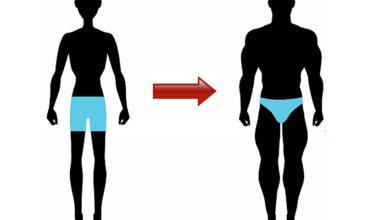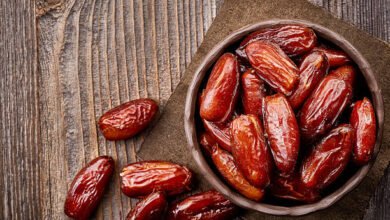The Top 9 Health Benefits Of Cucumber

Cucumbers and salads are synonymous with each other. It is often considered a fruit as well as a vegetable by experts as it belongs to the same plant family as that of the pumpkin, squash, and watermelon, i.e. the Cucurbitaceae family.
Amazingly refreshing cucumbers are long and lean and available in many colors. They have a distinct mild melon-like taste and smell due to the presence of aldehydes. The slight bitterness of cucumber skin is because of the cucurbitacins in it.
Cucumber Nutritional Facts
Cucumbers are low in calories but high in many important vitamins and minerals.
One 11-ounce (300-gram) unpeeled, raw cucumber contains the following :
- Calories: 45
- Total fat: 0 grams
- Carbs: 11 grams
- Protein: 2 grams
- Fiber: 2 grams
- Vitamin C: 14% of the RDI
- Vitamin K: 62% of the RDI
- Magnesium: 10% of the RDI
- Potassium: 13% of the RDI
- Manganese: 12% of the RDI
Although, the typical serving size is about one-third of a cucumber, so eating a standard portion would provide about one-third of the nutrients above.
Additionally, they have a high water content. In fact, cucumbers are made up of about 96% water.
To maximize their nutrient content, cucumbers should be eaten unpeeled. Peeling them reduces the amount of fiber, as well as certain vitamins and minerals.
The Top 6 Health Benefits Of Cucumber are:
Cucumbers are super hydrating
If you’ve been privy to any of the health impacts of cucumbers, you may know that they’re filled with water. They are high in water content, helping to keep you hydrated. In fact, they’re made up of at least 95 percent water, making them one of the most hydrating foods you can eat. Given that our bodies are also made of mostly water, hydration is key to keeping all of our organ systems functioning well, particularly our kidneys. It also helps us to maintain healthy blood pressure and keeps our detoxifying systems firing on all cylinders.
Cucumbers are high in vitamin K
With every serving of cucumbers, you’ll get closer to your daily vitamin K needs. Vitamin K most notably supports healthy blood clotting throughout the body. It’s also important for healthy bone development as a vital precursor to the protein osteocalcin, needed to create bone tissue.
Good for Digestion
Cucumbers act as a coolant for our stomach. The soluble fiber helps in slowing our digestion.
Also, the high content of water makes our stools soft, prevents constipation, and keeps our bowel movements regular.
They are anti-inflammatory
Cucumbers are chock full of antioxidants, like lignans, and minerals, such as potassium and magnesium, that Dr. Boling says can have anti-inflammatory effects on your body when you eat enough of them. Think beta carotene and flavonoids, both of which are powerful phytonutrients, i.e., good-for-you plant compounds.
In fact, cucumber’s anti-inflammatory processes may be so strong, that some experts are exploring the role of cucurbitacins (chemical compounds found in the cucumber family) in reducing your risk of cancer cells.
Assists in Balancing Hormones
Calcium is an integral element in the blood that affects hormonal balance. If any hormonal gland in the body, like the pituitary or thyroid, is out of balance, regular consumption can help regulate the hormonal levels back to normal, owing to its calcium levels.
It May Lower Blood Sugar
Several animal and test-tube studies have found that cucumbers may help reduce blood sugar levels and prevent some complications of diabetes.
One animal study examined the effects of various plants on blood sugar. Cucumbers were shown to effectively reduce and control blood sugar levels.
Another animal study induced diabetes in mice and then supplemented them with cucumber peel extract. Cucumber peel reversed most of the diabetes-associated changes and caused a decrease in blood sugar.
In addition, one test-tube study found that they may be effective at reducing oxidative stress and preventing diabetes-related complications.
However, the current evidence is limited to test-tube and animal studies. Further research is needed to determine how cucumbers may affect blood sugar in humans.
Improves Skin
Cucumber water is known to detoxify the body. The water flushes out all the unwanted toxins from the body and improves the health and the texture of the skin. Apart from the health benefits, cucumber has an irreplaceable spot in the beauty industry with its cooling, soothing, depuffing, and hydrating properties for the skin.

Helps in Managing Weight Loss
Cucumber juice is known to make you feel full and hence curb hunger pangs. When you take this juice as a part of your diet plan, you’ll feel fuller for the times in between your planned meals, which in turn will help burn the unwanted fat faster.
Cucumber Benefits for Hair
Cucumber isn’t a very glamorous vegetable but an exclusive ingredient in hair packs made in every other household. The benefits for hair are many, like:
- It strengthens the tresses
- It nourishes the scalp with its vitamins A and C, silicon, sodium, calcium, sulfur, and other contents
- Sulfur and potassium in it reduce hair fall
- Makes your hair silky
How to maximize the benefits of cucumbers
There are a number of easy ways to add more cucumber to your diet, but some of them are more beneficial than others.
Leave the peel on
The peel of a cucumber is actually where many of its nutrients are found, so if you’re eating cucumber to boost your vitamin and mineral intake, you should leave the peel on rather than remove it.
Blend, don’t juice
While cucumber juice sounds like a delicious way to cool down on a hot day, stick to tossing cucumbers in the blender rather than juicing them.
“I’d suggest blending cucumber into a smoothie so that you get the benefits of the whole vegetable—including the fiber,” says Gorin. “When you juice, oftentimes the fiber is discarded.”
Eat raw, not pickled
There are two types of people in this world: pickle lovers and pickle haters. While enjoying pickle slices on a burger is totally fine (and delicious), try not to rely on pickles for your cucumber intake. Gorin says pickled cucumbers have way more sodium than raw cucumbers, so if you’re watching your sodium intake or have high blood pressure, she suggests choosing fresh cucumbers over those soaked in brine.
Conclusion:
Embrace the goodness of cucumbers as you explore their numerous health benefits. From hydration to weight management, cucumbers prove to be a versatile and nutritious addition to your daily diet.
FAQs:
Q: Are cucumbers suitable for weight loss diets?
- A: Yes, cucumbers are low in calories and high in water content, making them an excellent choice for weight loss.
Q: Can cucumbers replace water for hydration?
- A: While cucumbers contribute to hydration, they should not replace water. They complement daily fluid intake.
Q: Are there any allergic reactions associated with cucumbers?
- A: Allergic reactions are rare but possible. Individuals with known allergies to gourds should exercise caution.
Q: Can cucumbers benefit skin health?
- A: Yes, cucumbers’ hydrating and antioxidant properties promote skin health, contributing to a clear and radiant complexion.
Q: How can cucumbers be incorporated into daily meals?
- A: Enjoy cucumbers in salads, smoothies, or as a refreshing snack. Their versatility makes them easy to include in various dishes.
Also read: https://www.healthevoke.com/6-health-benefits-of-pomegranates/












One Comment